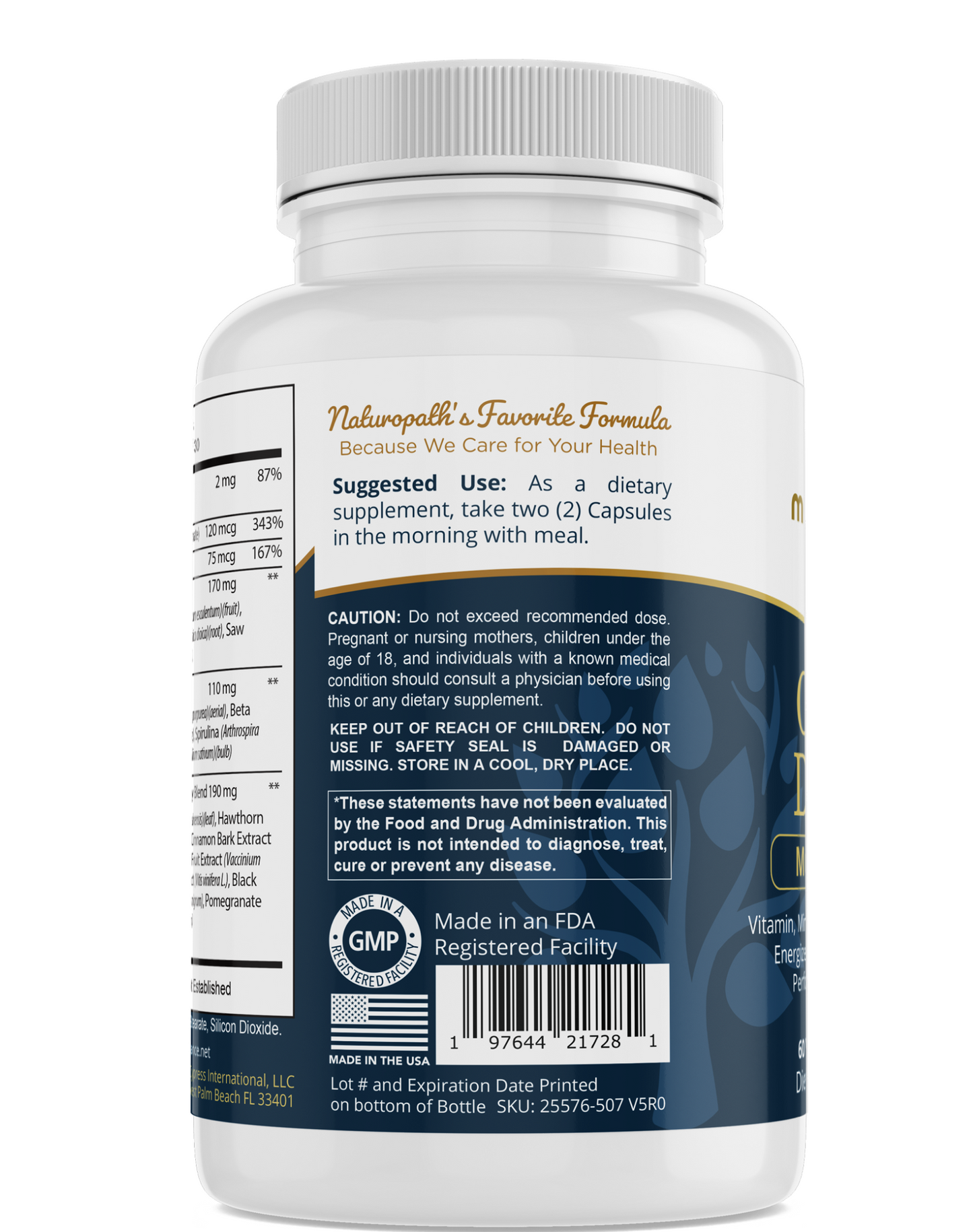


Did you know that even balanced diets can sometimes miss key nutrients? With busy lifestyles, stress, and modern farming practices, it's easy to fall short on the vitamins and minerals your body needs every day.
Without consistent intake of B-vitamins and iron-supporting nutrients, your natural energy may dip, leaving you feeling sluggish.
Your immune system depends on several nutrients to function efficiently—missing just a few can leave you feeling off.
Essential nutrients play a role in helping you feel mentally sharp and emotionally steady throughout the day.

A single daily dose delivers a complete blend of essential vitamins and minerals, designed to fill nutritional gaps and keep your body performing at its best. With support for energy, immunity, and overall wellness, it’s a simple step toward maintaining balance and vitality every day.

Here's What Users Have to Say
To support energy, focus, and cellular health.
Supports countless natural processes, from metabolism to nutrient absorption.
Vitamins C and E help your body handle everyday oxidative stress.

Supports energy production and helps your nervous system stay balanced.
Vitamin D, calcium, magnesium, and K1 help keep your bones strong.
Chromium and molybdenum assist with nutrient processing.

Taking a daily multivitamin shouldn't be complicated. Below are the most common questions we get about My Balance Multivitamins—so you can feel confident in your daily routine.
Just one capsule a day, preferably with food, is all you need for ongoing support.
Yes, it can be part of a broader wellness routine. Always check for overlap in ingredients.
No. It’s free from common allergens like gluten, soy, and dairy.
This product contains some ingredients that may not be suitable for vegans.
Most people find it gentle, especially when taken with food.
It provides a broad spectrum of vitamins and minerals in a clean, convenient formula with no unnecessary fillers.